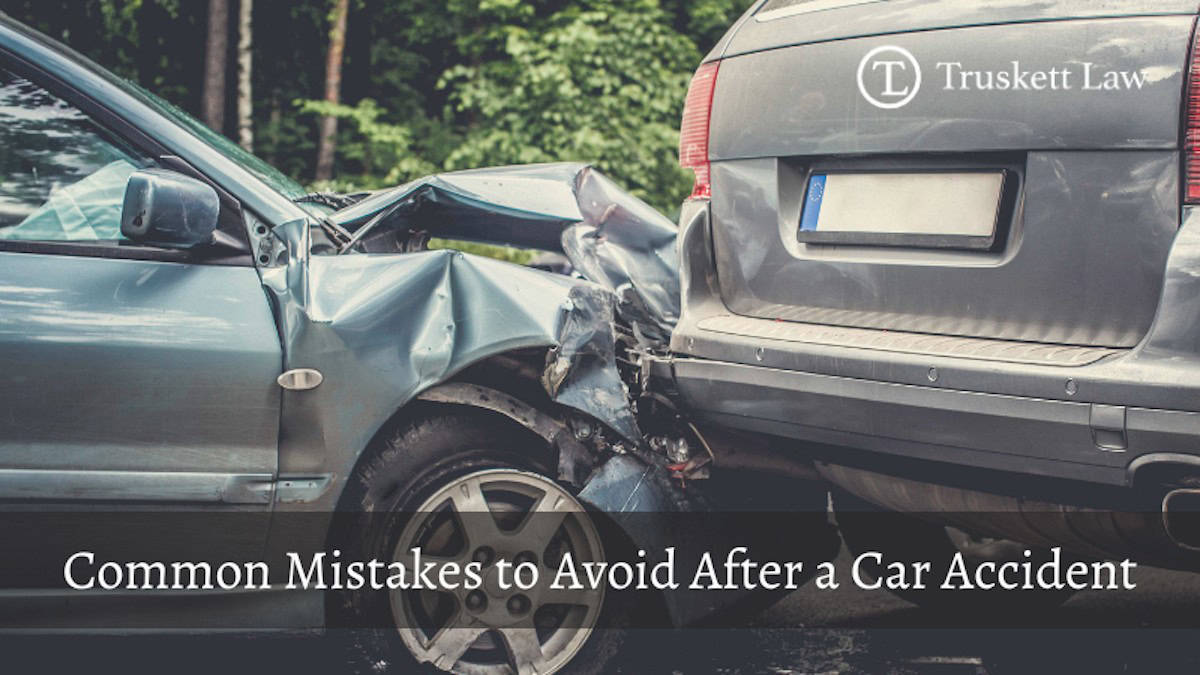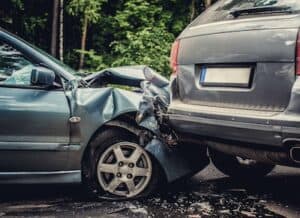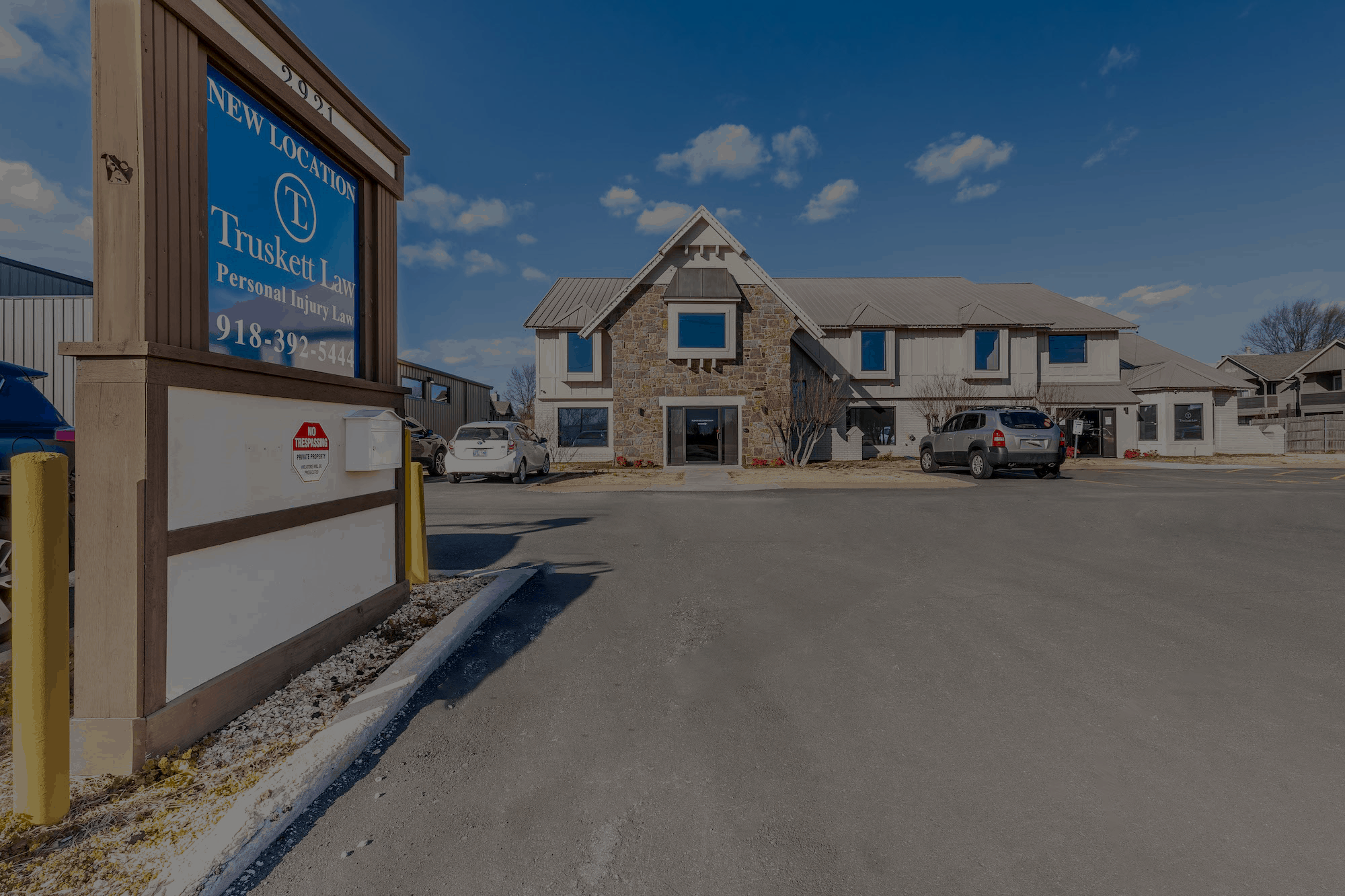
09 Aug Common Mistakes to Avoid After a Car Accident
What NOT to Do After a Car Accident
A car accident is a stressful and disorienting event. In the aftermath, it’s easy to make mistakes that could negatively impact your health, legal rights, and ability to receive compensation.
Knowing what to do – and what not to do – immediately after an accident is crucial. This article will outline common mistakes to avoid after a car accident, ensuring you’re prepared to handle the situation effectively and protect your interests.
Failing to Check for Injuries
Prioritizing Your Health and Safety
The first and most important step after a car accident is to check for injuries. Whether it’s a minor fender bender or a major collision, the shock and adrenaline can mask injuries. Even if you feel fine, it’s essential to assess yourself and others involved for any signs of injury. Ignoring injuries, especially those that are not immediately apparent, can lead to more severe health issues later on.
Seeking Immediate Medical Attention
If you or anyone else is injured, seek medical attention right away. Delaying medical care can worsen injuries and complicate your ability to claim compensation later. Even if you don’t think you’re seriously injured, it’s wise to get checked out by a medical professional as some injuries, like whiplash or internal bleeding, may not be immediately obvious.
Leaving the Scene Without Gathering Information
Staying at the Scene
One of the biggest mistakes you can make after a car accident is leaving the scene before gathering the necessary information. Even in minor accidents, it’s important to remain at the scene until you’ve exchanged information with the other driver, documented the accident, and spoken with law enforcement if necessary.
Collecting Key Information
Make sure to collect the following information: the other driver’s name, contact details, insurance information, and license plate number. Additionally, note the make, model, and color of the other vehicle, as well as the location and time of the accident. If there are any witnesses, try to get their contact information as well. This information will be crucial when filing an insurance claim or if legal action becomes necessary.
Failing to Document the Accident
Taking Photos and Videos
In the digital age, documentation is easier than ever. One common mistake is failing to take photos or videos of the accident scene. Documenting the damage to all vehicles involved, the surrounding area, and any visible injuries can provide valuable evidence in your case. Make sure to capture different angles and close-ups to show the full extent of the damage.

Writing Down Details
In addition to visual documentation, write down everything you remember about the accident as soon as possible. Include details like the weather conditions, road conditions, and any statements made by the other driver. These notes can be a useful reference later, especially if your memory of the event starts to fade.
Admitting Fault or Making Statements
Avoiding Admissions of Guilt
In the heat of the moment, it’s easy to say things that could be interpreted as admitting fault, even if you’re not responsible for the accident. Phrases like “I’m sorry” or “I didn’t see you” can be used against you later. It’s important to remain calm and avoid making any statements about who was at fault.
Being Cautious with Your Words
When speaking with the other driver, witnesses, or law enforcement, stick to the facts and avoid speculating about what happened. Be honest but concise. Anything you say can potentially be used by insurance companies or in court to undermine your case.
Not Calling the Police
Involving Law Enforcement
In some cases, drivers may agree to handle the accident privately without involving the police. This is a mistake. Having a police report is crucial for any insurance claims or legal proceedings that may follow. The police will document the scene, interview witnesses, and provide an official report that can serve as vital evidence.
Obtaining a Police Report
After the police arrive, provide them with an accurate account of the accident. Once the report is completed, make sure to obtain a copy for your records. This document will be an essential piece of evidence when dealing with insurance companies or legal matters.
Delaying an Insurance Claim
Promptly Reporting the Accident
Failing to report the accident to your insurance company in a timely manner is another common mistake. Even if you’re not at fault, you need to inform your insurer as soon as possible. Most insurance policies require you to report accidents promptly, and delaying this could result in a denial of coverage.
Providing Accurate Information
When filing your claim, be honest and thorough. Provide all the necessary details and avoid exaggerating or downplaying any aspects of the accident. Misleading your insurance company can lead to complications and potentially void your coverage.

Neglecting to Seek Legal Advice
Consulting a Personal Injury Lawyer
One of the most critical mistakes you can make after a car accident is not seeking legal advice, especially if you’ve suffered injuries. A personal injury lawyer can guide you through the complexities of filing a claim, dealing with insurance companies, and pursuing compensation. They can also help you understand your rights and ensure you’re not taken advantage of during the process.
Understanding Your Legal Options
Even if you think your case is straightforward, consulting with a lawyer can provide valuable insights and protect your interests. They can help you evaluate any settlement offers, negotiate on your behalf, and represent you in court if necessary.
Ignoring Potential Injuries
Monitoring Your Health
Some injuries, such as whiplash or concussions, may not present symptoms until hours or even days after the accident. Ignoring these potential injuries can lead to serious health consequences later on. It’s important to monitor your health closely and seek medical attention if any symptoms arise.
Documenting Medical Treatment
If you seek medical treatment, be sure to keep detailed records of your visits, diagnoses, and any prescribed treatments. This documentation will be important if you need to file a personal injury claim or seek compensation for medical expenses.
Accepting the First Settlement Offer
Evaluating Settlement Offers
Insurance companies often try to settle claims quickly and for as little money as possible. One common mistake is accepting the first settlement offer without fully understanding the extent of your injuries or the long-term costs associated with the accident. It’s important to evaluate any settlement offer carefully and consider whether it adequately covers your medical expenses, lost wages, and other damages.
Negotiating for Fair Compensation
If the initial offer is insufficient, don’t be afraid to negotiate. A personal injury lawyer can assist in this process, ensuring that you receive fair compensation that accurately reflects your injuries and losses. Remember, once you accept a settlement, you typically cannot pursue further compensation for the same accident.

Failing to Keep Records
Organizing Documentation
Keeping organized records of all documents related to the accident is essential. This includes medical bills, repair estimates, communication with your insurance company, and any legal correspondence. Failing to keep these records can make it more difficult to pursue your claim and could result in a lower settlement.
Maintaining a Paper Trail
A clear paper trail will help you track your expenses and ensure that you’re compensated for all your losses. It also provides a comprehensive overview of your case, which can be invaluable if you need to take legal action.
Overlooking Emotional and Psychological Impact
Acknowledging Emotional Trauma
Car accidents can be traumatic, and the emotional impact is often overlooked. It’s a mistake to ignore the psychological effects of an accident, such as anxiety, depression, or post-traumatic stress disorder (PTSD). Acknowledging these issues is the first step toward getting the help you need.
Seeking Professional Help
If you’re struggling emotionally after an accident, consider seeking professional help. Therapy or counseling can provide support and help you cope with the emotional aftermath. Additionally, these services can be included in your claim for compensation if they’re directly related to the accident.
Conclusion
After a car accident, the actions you take – or fail to take – can significantly impact your health, legal rights, and ability to receive compensation. By avoiding these common mistakes, you can better protect yourself and ensure a smoother recovery process.
Remember, seeking prompt medical attention, gathering evidence, consulting with a lawyer, and carefully managing your interactions with insurance companies are all critical steps to take after an accident. Don’t let a moment of inattention or a hasty decision jeopardize your well-being or your right to fair compensation.


Sorry, the comment form is closed at this time.